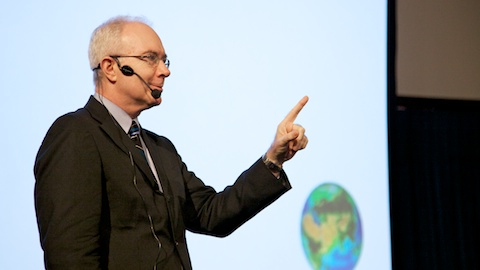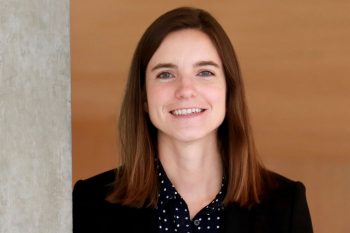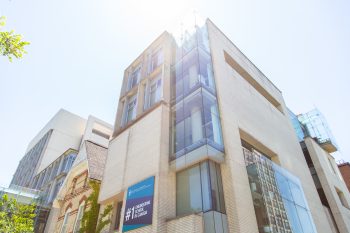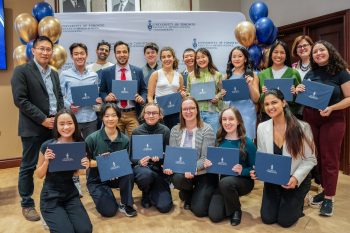This year, the Faculty of Applied Science & Engineering was proud to present Paul Cadario (CivE 7T3), Senior Manager at the World Bank, as guest speaker of U of T Engineering’s annual plenary speech.
On September 8, first-year students ushered in their first week of classes with inspiring words from both Cadario and Dean Cristina Amon.
“More than ever, this world needs your dreams, your innovation and your hopes,” said Dean Amon, before introducing Cadario.
“Engineers have a great responsibility to improve the world. Paul Cadario has taken that to heart. He is not only a great friend to U of T Engineering, but is an engineer who has dedicated his career to fighting poverty and improving the living standards of people in the developing world,” said Dean Amon.
Following his Oxford studies as a Rhodes Scholar, the self-described “global engineer” went to work for the World Bank in 1975. As a young Transport Economist in West Africa, he helped the Bank use its funds to reduce poverty.
His career then took him around the world – to China, where he worked to integrate the country into the world economy, and to the countries of the former Soviet Union, as they joined the World Bank in the 1990s.
In late 2001, Cadario was appointed to his present post, where he oversees the Bank’s trusteeship of donor countries’ contributions to development activities outside the Bank’s normal lending business.
In his presentation, he gave the students a glimpse of his career, which intersects engineering, business and global politics. He explained to the class of 1T5 the importance of understanding the context of problems from multiple perspectives before undertaking a solution.
There are two key aspects, he said, that will help them pioneer solutions. “Much of what you’re doing will include context and perspective: why are we doing this? How will this affect the outcome now and in the future? And that is just as important as the engineering.”
“Paul’s talk was inspirational. He was able to show through his experiences how engineering can have a huge impact on the world,” said Professor Susan McCahan (MIE), the Vice-Dean, Undergraduate, beginning September 15.
Taking into consideration the political, social and environmental issues, is vital to successful design, said Cadario. “You can’t use the scientific approach for every approach.”
The challenges the World Bank encountered, financing the highly publicized Tarbela dam in Pakistan (upstream from India, on the Indian and Pakistani borders), involved more than just technical knowledge, he said. And creating ground water development initiatives, on Greece’s border with Turkey during politically sensitive times in the mid 1970s, meant thinking about present and future implications for people living on both sides.
“Today, being willing is not enough,” he said. “You must ask yourself what type of world you live in, what type of world do you want to live in and what are you going to do about it?”



